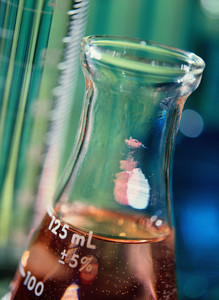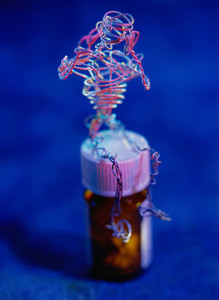The blockbuster drug Plavix (clopidogrel), used to prevent clotting in some heart patients, comes off patent in the US on 17 May 2012, bringing to an end the run of spectacularly well-selling traditional medicines.
Sales may well go up, because the generic prices will be much lower, and more patients will be able to afford the protection it offers against heart attacks and strokes. Adherence rates will improve as a result, and fewer patients will suffer from preventable cardiovascular problems, said Professor Gregg Fonarow, MD, Professor of medicine and a spokesman for the American Heart Association. But the lower price and many competing brands of the drug mean that Bristol-Myers Squibb’s sales will decline dramatically. The drug already is sold as a generic by Sanofi in many countries in the EU.
Blood thinner
Clopidogrel is an antiplatelet medicine that is used to prevent a further heart attack in patients who have recently had one. It is also used in patients who have had other problems caused by blood clots, such as ischaemic strokes (non-bleeding strokes) or acute coronary syndromes. It is a prodrug, converted from an inactive form to an active form in the body.
There is some controversy around its effectiveness. Some people may not be able to metabolise it to the active form. Stopping the blood from clotting too much inherently causes a tendency to bleed, so proton-pump inhibitors (PPIs) may be prescribed with it to counter gastric side effects such as ulcer, there may be an interaction with PPIs [1]. Nevertheless, ‘This drug has helped millions of patients avoid fatal and non-fatal cardiovascular events,’ said Professor Fonarow. ‘Patients who stop taking the drug prematurely may then face catastrophic consequences, including fatal cardiovascular events and strokes’, he added. So the new generics status is very welcome.
Clopidogrel, even in a less expensive version, cannot replace other clot-preventing drugs, such as warfarin, in certain patients. For example, clopidogrel is not recommended for patients with atrial fibrillation, who take blood thinners to prevent strokes. Anticoagulants such as warfarin, dabigatran and rivaroxaban are indicated, and clopidogrel is not an appropriate substitute. In addition, new drugs are available that may be better than clopidogrel.
But most patients will go for generic clopidogrel, and Walmart is happy to supply it, the latest of thousands of generic medicines. The chain claims to have saved Americans more than US$4.8 billion (Euros 3.8 billion) on their prescriptions since the programme launched in 2006 [2].
Abbott Laboratories' Euros 7 billion arthritis drug Humira is set to take the crown as the world’s top-selling medicine in 2012, highlighting the dominance of costly biological medicines as revenue drivers whilst the old-style small molecule drug sales decline.
Editor’s comment
Readers interested to learn more of the EU country experiences and perspectives of generic clopidogrel usage are invited to visit www.gabi-journal.net to view the following two peer reviewed articles due to be published shortly in GaBI Journal:
What lessons can be learnt from the launch of generic clopidogrel
Generic clopidogrel – the medicines agency’s perspective
Related articles
Brand-name atorvastatin cheaper than generics
Generics reach 80% and play a critical role in reducing costs
Apotex clopidogrel at-risk launch costs US$442 million
Source: EMA, The New York Times








 0
0











Post your comment